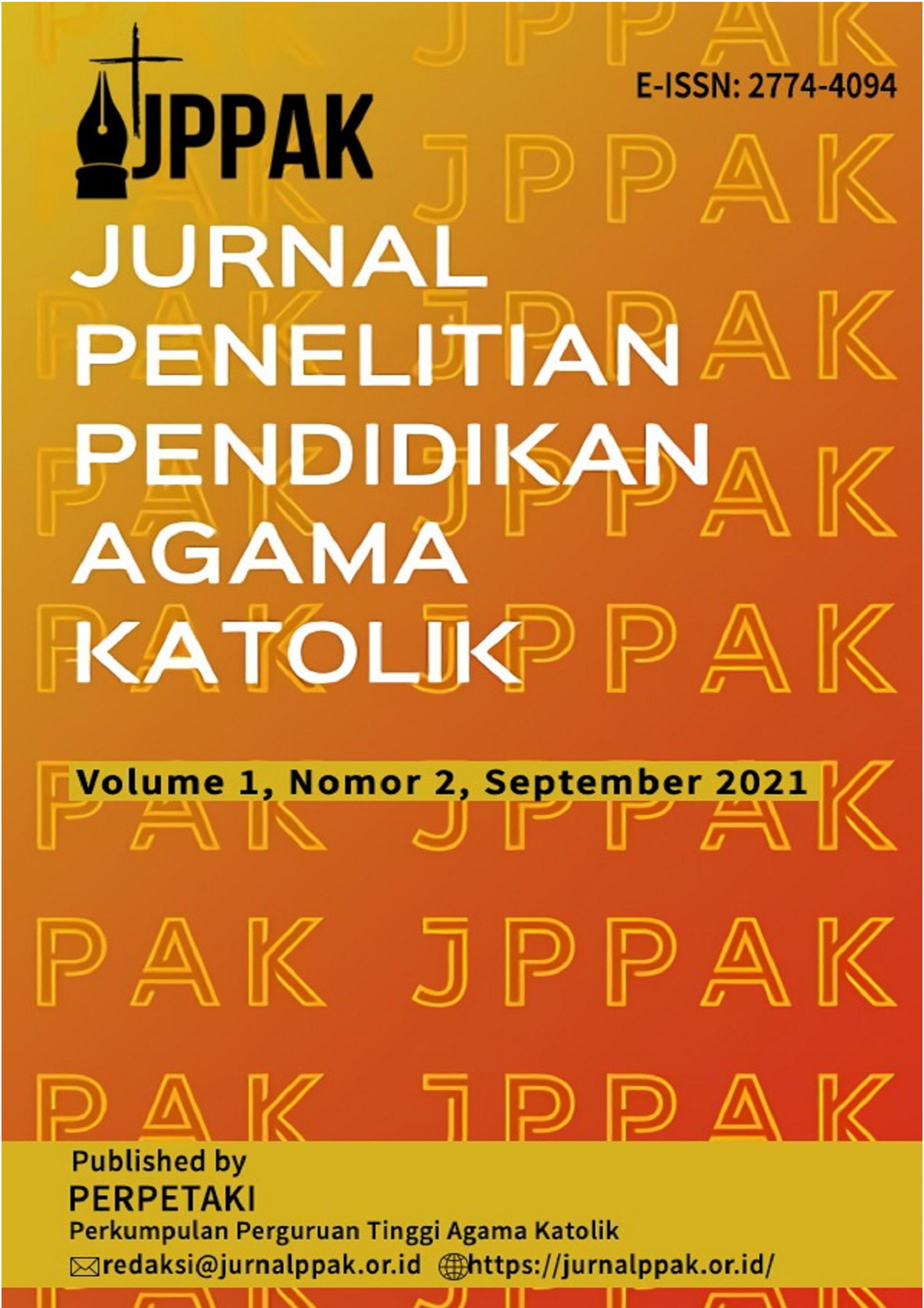Relationship of Emotion Regulation with Academic Resilience of Pematangsiantar High School Seminary Students
DOI:
https://doi.org/10.52110/jppak.v2i2.56Keywords:
Emotional Regulation, Academic Resilience, Middle Seminary High School students, Resilience Protective FactorsAbstract
Emotion regulation is defined as the ability to control and manage individual emotions so that their emotions become stable. While academic resilience is the individual's capacity to face and overcome all problems, challenges, and obstacles to able to achieve success in studies. This study aims to determine the relationship between emotional regulation and student academic resilience. The subjects of this study were Pematangsiantar Middle School Seminary High School students, in 2021, totaling 218 people, starting from class X to class XII. The research instrument used was the student's academic resilience scale and the emotional regulation scale using a 4-option Likert scale. The data collected was first tested with validity and reliability tests, then normality was tested. The results of the validity test showed that the 16 items on the academic resilience scale got the lowest r value of 0.162> 0.1161 (r table). The 15 items of the emotional regulation scale got the lowest r table value of 0.403. Thus, all items from the two variables are declared valid. The results of the reliability test showed that Cronbach's alpha value on the emotion regulation scale was 0.878. Meanwhile, academic resilience is 0.894. Thus the reliability of each scale has been fulfilled. While the linearity test showed that the correlation between the variables X – Y was 0.00<0.05 with a df value of 0.024>0.05. It means that
variable X has a significant and positive correlation with variable Y. Furthermore, the results of the regression analysis show that emotion regulation contributes 50.2% to students' academic resilience. It can be concluded that emotional regulation is a protective factor for the academic resilience of Pematangsiantar High School Seminary students.
Downloads
##submission.downloads##
Submitted
Accepted
Published
How to Cite
Issue
Section
License
Copyright (c) 2022 Mimpin Sembiring, Thomas Tarigan

This work is licensed under a Creative Commons Attribution-ShareAlike 4.0 International License.
Copyright Notice and Permissions
Jurnal Penelitian Pendidikan Agama Katolik offers immediate open access to all its content on the principle to make researches freely available to the public, especially to the scholars, to support greater global exchanges of knowledge. This journal encourages all scholarly authors to allow their research openly available, free access and without time restrictions.
All articles published Open Access will be immediately and permanently free for everyone to read and download. Under the CC BY-SA 4.0 license, authors retain ownership of the copyright for their article, however authors grant others permission to use the content of publications in Jurnal Penelitian Pendidikan Agama Katolik (JPPAK) in whole or in part provided that the original work is properly cited. Users (redistributors) of Jurnal Penelitian Pendidikan Agama Katolik (JPPAK) are required to cite the original source by including at least: the full title of the article, the author's or authors' full name(s), JPPAK as the initial source of publication, year of publication and volume number using a propriate citing method.
Copyright encompasses exclusive rights to reproduce and deliver the article in all form and media, including reprints, photographs, microfilms and any other similar reproductions, as well as translations. The reproduction of any part of this journal, its storage in databases and its transmission by any form or media, such as electronic, electrostatic and mechanical copies, photocopies, recordings, magnetic media is prohibited without consent of Jurnal Penelitian Pendidikan Agama Katolik (JPPAK).
Jurnal Penelitian Pendidikan Agama Katolik (JPPAK) is licensed under a Creative Commons Attribution Share-Alike 4.0 International. (CC BY-SA 4.0)
Authors who publish with Jurnal Penelitian Pendidikan Agama Katolik (JPPAK) agree to the following terms:
- Authors retain copyright and grant the journal right of first publication with the work simultaneously licensed under a Creative Commons Attribution Share-Alike 4.0 International (CC BY-SA 4.0) license that allows others to share the work with an acknowledgement of the work's authorship and initial publication in this journal.
- Authors are able to enter into separate, additional contractual arrangements for the non-exclusive distribution of the journal's published version of the work (e.g., post it to an institutional repository or publish it in a book), with an acknowledgement of its initial publication in this journal.
- Authors are permitted and encouraged to post their work online (e.g., in institutional repositories or on their website) after the publication on JPPAK, as long as it not published on other OJS for it will be treated as plagiarism by plagiarism checker apps. It can lead to productive exchanges, as well as earlier and greater citation of published work (See The Effect of Open Access).












